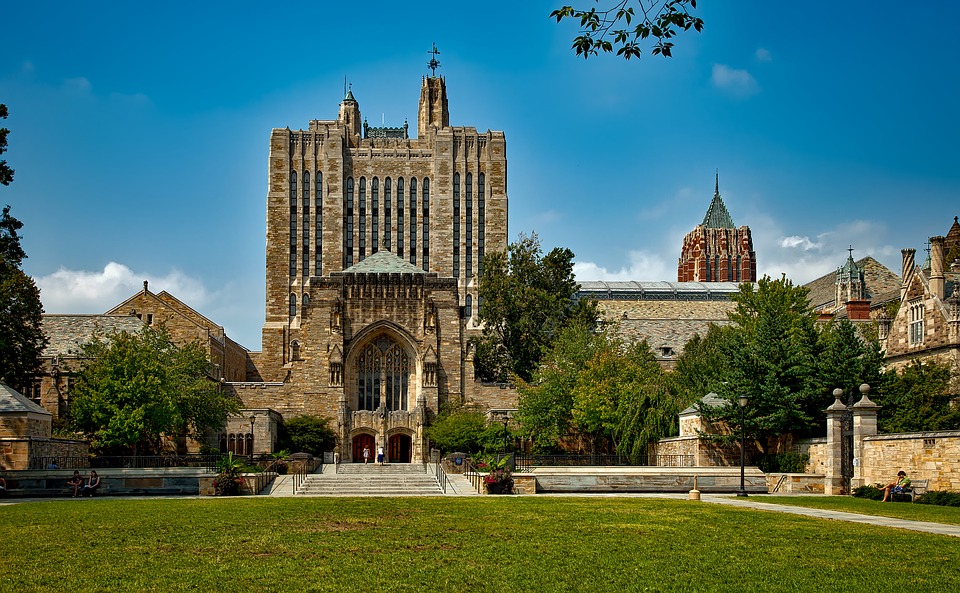Every baseball game starts with the Star Spangled Banner: “And the star-spangled banner in triumph shall wave o’er the land of the free and the home of the brave!” Are we in the land of the free when we hesitate to share our thoughts, in fear of reactions from others? Freedom of expression — including freedom of speech and assembly and freedom of the press — is guaranteed in the First Amendment and is central to a vibrant democracy, to creativity, innovation, progress and to everyone’s quality of life. It is the most cherished of our freedoms.
“Congress shall make no law respecting an establishment of religion, or prohibiting the free exercise thereof; or abridging the freedom of speech, or of the press; or the right of the people peaceably to assemble, and to petition the Government for a redress of grievances.” –First Amendment of the U.S. Constitution
But recently, this free exchange of ideas has come under threat on college campuses, where various developments are having a chilling effect on free speech. University administrators have rescinded invitations and cancelled speakers’ appearances, usually due to pressure from students and faculty. Yale lecturer Erika Christakis’ email to students about the proper role of the university administration in policing Halloween costumes cost her her job. At Middlebury College, an angry mob pursued Charles Murray and Professor Allison Stanger, whom he was to debate, injuring Professor Stanger. Charles Murray writes about the incident, telling us, “the people in the audience who wanted to hear me speak were completely cowed. That cannot be allowed to stand. A campus where a majority of students are fearful to speak openly because they know a minority will jump on them is no longer an intellectually free campus in any meaningful sense.”
Notre Dame Professor Vincent Philip Munoz eloquently explains the importance of his invitation to Charles Murray to speak on his campus: “Given the trends of cancelled lectures, ever-increasing calls to disinvite speakers, and ideological bullying on college campuses, we must take a stand for civil discourse and reasoned engagement. We must show that universities can host respectful conversations among people who disagree. If we can’t accomplish that minimal academic exercise, the university has lost its purpose.”
Jonathan Haidt, Professor of Ethical Leadership at New York University’s Stern School of Business and founder of Heterodox Academy, traces the causes of the current climate in this article in the Wall Street Journal. To help counter this trend, Heterodox Academy is introducing the Viewpoint Diversity Experience, an online course in how to practice open-minded conversations with those holding opposing viewpoints. Professor Haidt, together with Frank Bruni of the New York Times, were recently interviewed about Viewpoint Diversity. Together, they raise some critical questions for all of us to consider.
The Policy Circle fundamental value is that everyone has a mind of their own, and everyone’s opinion matters. The Policy Circle discussion model encourages fact-based conversations around Policy Briefs. Everyone comes prepared by having read the chosen Policy Brief, as suggested in the Year of Conversation. Following a structured roundtable discussion format, everyone is invited to share the lenses that they wore when reading the brief, what they learned, what was missing, what their understanding was of the key issues and how to participate in policy making. These discussion guidelines foster enriching and empowering conversations.
The Policy Circle will soon publish a brief on Free Speech, but some Circles will certainly be following the discussions and readings proposed by Heterodox Academy’s Viewpoint Diversity Experience.
“Freedom of speech is a principal pillar of a free government: When this support is taken away, the constitution of a free society is dissolved” — Benjamin Franklin
It’s a movement!
Recommend a Circle Leader. Especially in Nebraska, Wisconsin, Minnesota and Missouri where circles are sprouting.
Start a Circle in your neighborhood. Add value in your community by giving women the facts and the space to strengthen their understanding of the issues.
Invest in The Policy Circle. Together let’s build a network of women who want to assume their civic duties and understand the impact of policy in their lives.
The Policy Circle is a 501(c)3 that provides a fact-based, nonpartisan framework that inspires women living in the same community to connect, learn about and discuss public policies that impact their lives. Women across the nation are taking a leadership role in public policy dialogue on what human creativity can accomplish in a free market economy.




